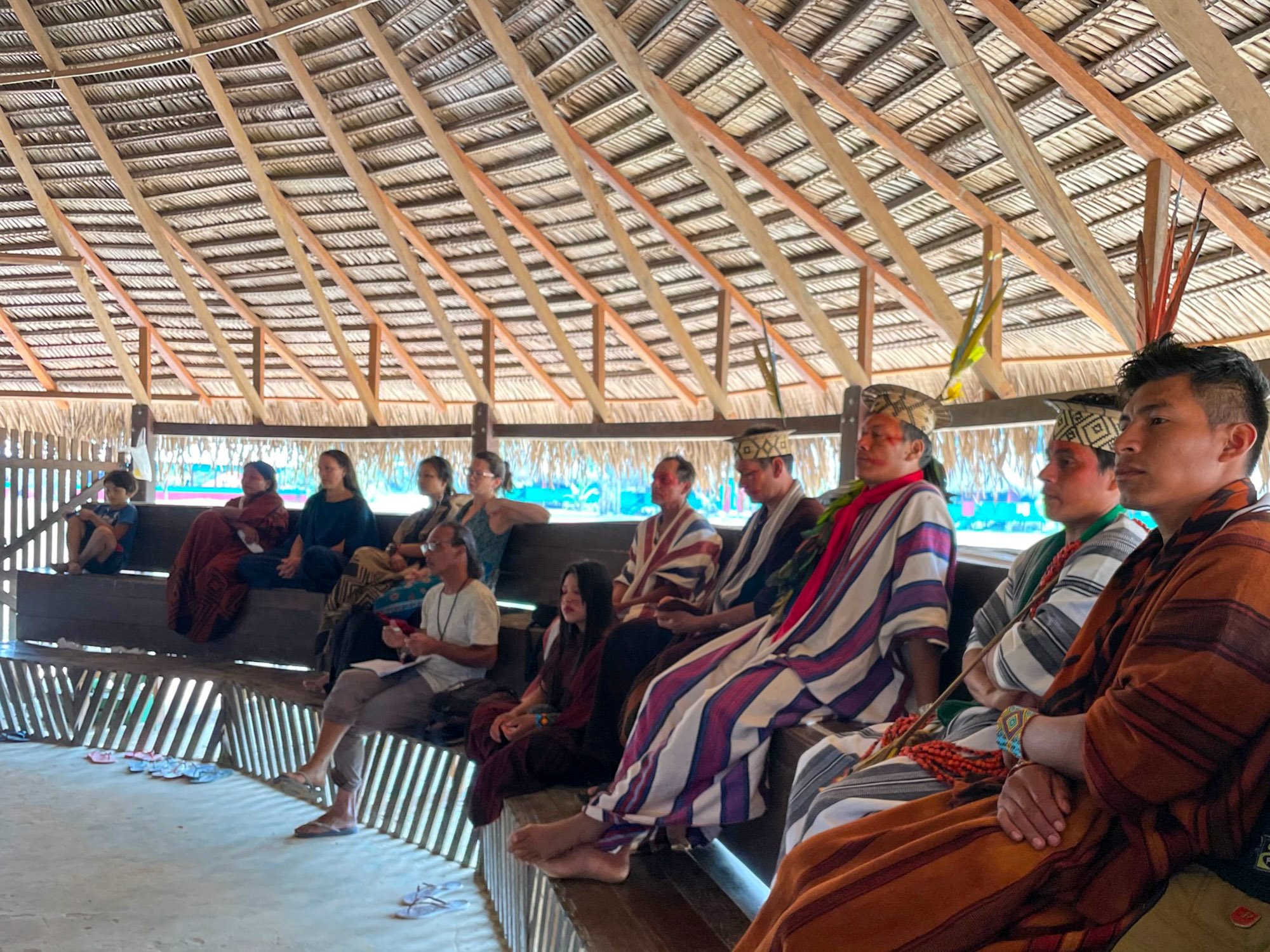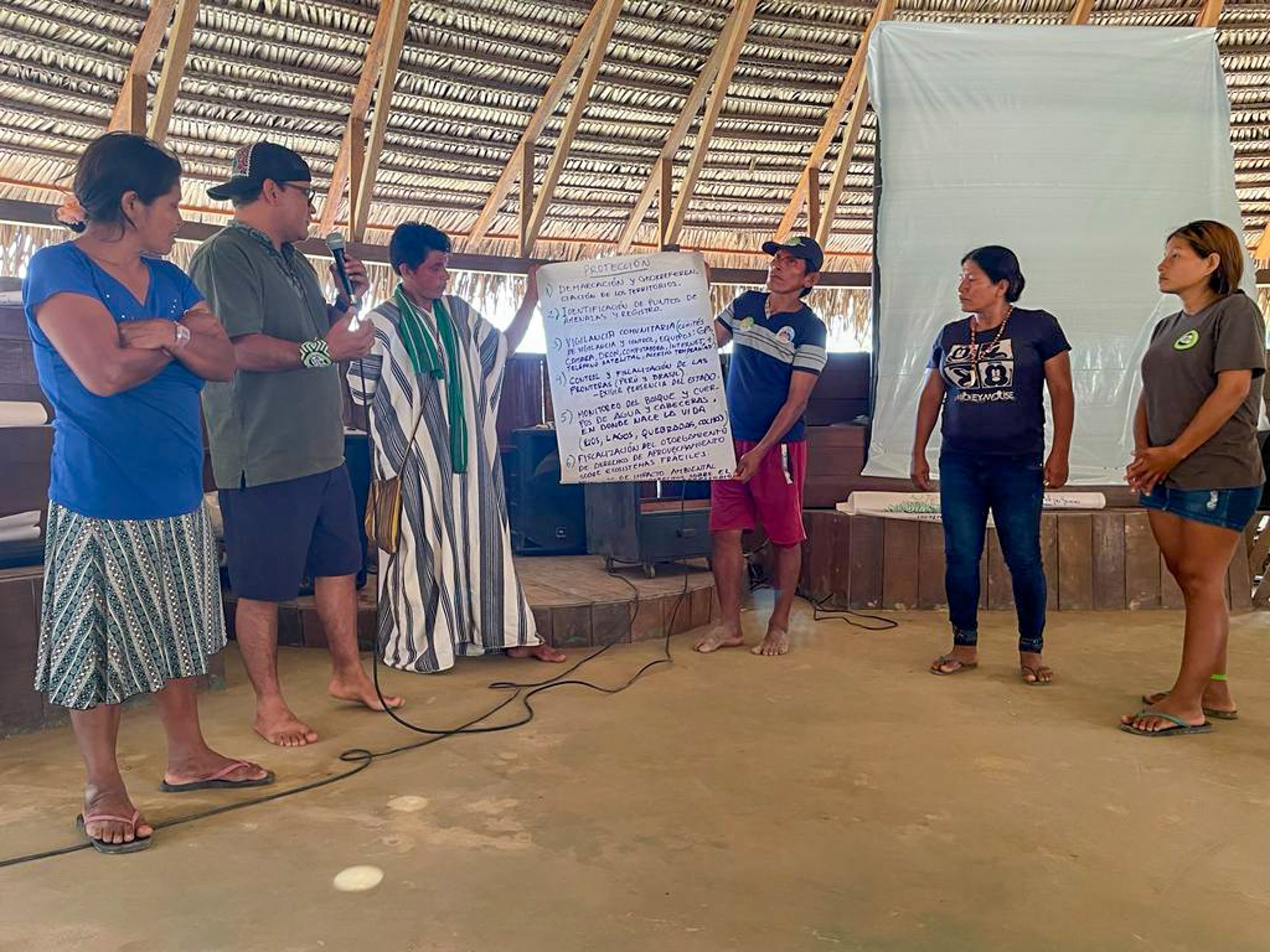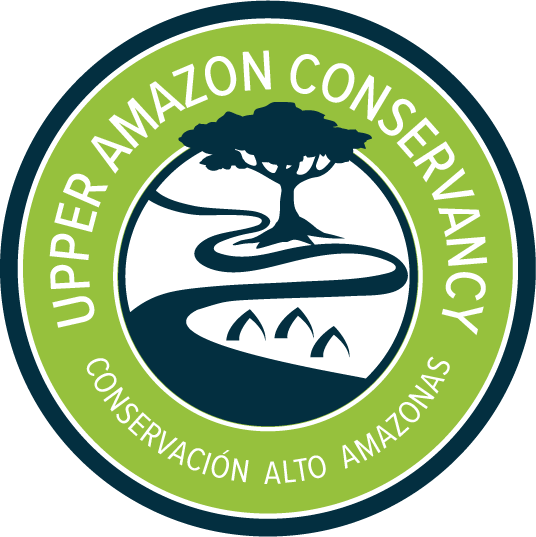Borderland Tribes Join Forces to Defend their Territory and Culture
Earlier this month, from September 5th to 7th, indigenous leaders and partners met in the Brazilian town of Marechal Thaumaturgo near the Peru border to discuss threats to their territories and develop collaborative solutions to protect their lands, resources and way of life. The leaders were from communities on the very remote Yurúa, Juruá and Tamaya rivers in the borderlands of Acre, Brazil and Ucayali, Peru and represent six tribes: the Asháninka, Ashéninka, Kuntanawa, Huni Kuin – Kaxinawá, Yaminahua and Shipibo Konibo.
The group first met in November 2021 in the Brazilian Indigenous community of Apiwtxa. During that meeting, it formed the “Yurúa - Juruá - Tamaya Transboundary Commission”, a partnership among regional indigenous tribes and partner NGO’s who are concerned about the dramatic increase of road construction and related deforestation.
Among the strategies discussed over the three-day meeting included the need for more support for monitoring and vigilance activities, as well as new community projects that can generate much-needed income and can keep younger generations from leaving the communities to find work. Another major theme was empowering more women to become tribal leaders.
The goal of the Commission is to promote better communication and stronger collaboration among the transboundary tribes to develop strategies to defend their territory, collaboration which is sorely needed in the absence of virtually any government support in this remote, hard to access region. The November meeting resulted in a declaration of concerns about illegal activities and a demand for stronger enforcement of laws intended to protect the forest and indigenous rights.
A second meeting was held in April in the Peruvian town of Puerto Breu and resulted in the “Puerto Breu Declaration,” a detailed list of demands for more government investments in sustainable community development projects and support for climate change initiatives.
This most recent meeting in September was a continuation of progress made in November and April. Of special significance is activating a new collaboration agreement between the indigenous federations representing the tribes from both sides of the border. The Association of Native Communities for the Integral Development of Yurúa Yono Sharakoiai (ACONADIYSH) represents 18 Peruvian communities. The Organization of the Indigenous Peoples of the Juruá River, (OPIRJ) representing Brazilian tribes. The ACONADIYSH - OPIRJ agreement includes the framework for implementing joint activities needed to strengthen and make viable the mission and visions of both institutions, while contributing to the promotion of sustainable resource management, vigilance, and better communication among tribes on both sides of the border.






During the final day of the event, participants split into working groups to focus on specific issues such as threats, community needs, and women empowerment. This resulted in a new document called the “Declaration of the Yurúa - Juruá - Tamaya Strategic Transboundary Commission Meeting: Threats, Protection and Development in the Amazon Borderlands of Peru and Brazil.” The declaration highlights the numerous threats to the territories, culture and ways of life of indigenous peoples on both sides of the border, with a special emphasis on illegal road construction which has dramatically increased drug trafficking in the region. It also calls on Peru and Brazil to guarantee basic services in the communities such as health care and clean water and demands the governments guarantee the protection of its indigenous leaders from loggers, narcos and others who continually threaten them with violence and even death.
See below for versions of the Declaration in English, Spanish and Portuguese.
UAC is a proud supporter of the Transboundary Commission and wants to thank our donors for making this important work possible!

